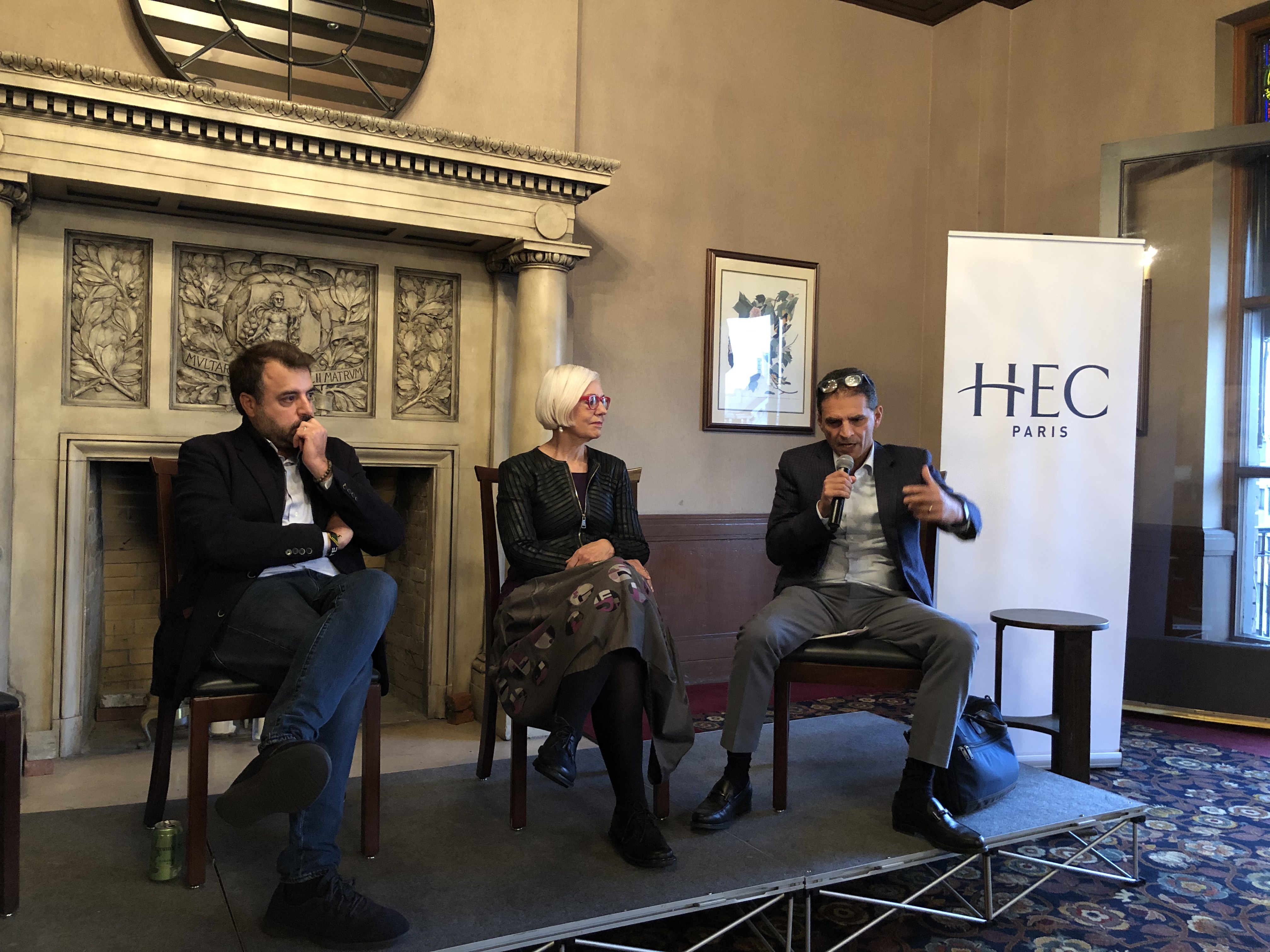
Two months ago, I applied and was accepted to a master’s program at a prestigious business school (ranked #2), HEC Paris. The degree is title Master of Science in Innovation and Entrepreneurship (MSIE). It has 10 normal courses, 10 practical project-based courses and one large team project. The master’s program lasts about one year and a half. Thus the program ends in 2020. However the graduation will be in 2021, because HEC has only one graduation ceremony which is held in its beautiful Paris campus.
I finished my first Master’s degree in 2007. It was Master of Science in Information Systems Technology from the University of Northern Virginia. I don’t like traditional universities and degrees. I’m a strong proponent of modern online education like Node University or Udacity. I taught at the Hack Reactor coding academy and I’m a huge fan of vocational schools that teach practical trades as oppose to abstract and theoretical knowledge unnecessary for the real-world jobs. Needless to say, that there are a lot of materials available online via YouTube and blogs. So it might come as a surprise that I’m getting a second masters degree. However, I decided to commit to getting a second Master of Science degree for the following reasons:
- Motivation: When you pay 10s of thousands of dollars or euros you are more motivated to continue and finish the studies
- Focus and pre-filter: Someone with a good reputation already did the selection for me. I avoid ads or possible distractions form web surfing when I’m on Coursera.
- European perspective: Living in San Francisco and Silicon Valley area for the last seven years I understand that we live in a bubble here. SF is not the entire world which has other, bigger and more real, problems. It’s nice to hear and learn another perspective on business and innovation.
- Content: Things change fast and after 12 years, it’ll be nice to become a student again and get a nice broad overview of current methods and techniques in entrepreneurship in a nice distraction-free format (reading blogs or watching YouTube is a pain!).
- Experience: the MSIE program is mostly (50%+) project based which gives actual experience instead of just being abstract lectures.
- Brand and Network: HEC Paris is number 2 business school in Europe with a large and global presence, brand and alumni network. Brand is great because it attracts best student (for peer learning), best coaches (for projects) and best faculty (for lectures).
- Convenience: The MSIE program is 100% online with weekly live calls, chat rooms, forums and online proctored exams. I don’t like the idea of being confined to one location and a set time for lectures for the next two years. With this format, I can travel often or even more to a new place all together.
- Relatively cheap: The MSIE, HEC Paris program cost only 20,000 euros comparing to ~$30-40,000 USD for master’s from Harvard Extension or $150,000 USD for Wharton EMBA.
I looked at other Master’s programs. In particular, I researched Wharton Executive MBA (WEMBA) in San Francisco. They fly all the faculty from Pennsylvania ever other week. I even took a few courses form the same program. The requirement of being tied and having to come to SF every other week for two years is too limiting for me. The price is very steel.
I looked at master degrees from Harvard Extension and even took a course from them. I didn’t like their approach. It’s too rigid with the focus on minute details, fact and rote memorization. The requirement for home assignment for some courses are too arcane (must be only in MS Word with certain font size and margins). The fact that they require students to come to every live webinar every week (missing even a single webinar is not allowed) is very depressing and limiting. The platform is clunky (can’t download videos for online viewing).
I like the HEC Paris uses Coursera which is one of the best platforms for online courses. The MSIE content is relatively new and the approach is more practical. I’m in cohort 4 which means that it’s only fourth batch of students. If I’m not mistaken, cohorts 2 and 3 are still studying and haven’t graduated. Being in the 4th cohort means that university and Coursera ironed out all the kicks and perfected the program.
The application process was lengthy but totally doable: few essays, video cover letter, bio, experience and two references (done by email). The Coursera and HEC Paris staff are responsive and all the logistics ran smooth so far. The students have incredible backgrounds and I’m sure we’ll learn a great deal form each other in addition to the lectures and projects.
I’ll try to keep writing about my journey through this innovative and practical Master of Science program.

